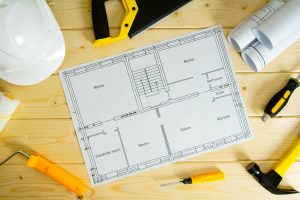 Before you even think of buying a house, you need to figure out how much you can sell it for.
Before you even think of buying a house, you need to figure out how much you can sell it for.
How do you that?
That number is called the After-Repair Value or ARV. It’s the market value of a property after repairs and renovations. It may be the most important number in the process of flipping a house. That’s because it’s the number you share with prospective lenders. It’s also the number you use to figure out whether this is a house that you can make money on.
Comps
To find it, start by looking at comparable houses, or comps. Although plenty of real estate websites include information about prices and neighborhoods, the most accurate way of finding out this information is the Multiple Listing Service, or MLS, from a licensed real estate agent. Get information on houses that sold within the past six months.
When looking at comps, here’s what to look for:
– Location: Near your house and in the same neighborhood as yours. Even if a similar house in a different neighborhood is a little closer than one in yours, choose the one in your neighborhood.
– Size: Choose a house that’s within 100 to 200 square feet of your house.
– Bedrooms/bathrooms: If at all possible, choose houses with the same number of bedrooms and bathrooms as yours.
–Selling price: Look at how much the similar-sized houses sold for. Take the average and price yours within a few thousand dollars of the average price of other comps.
Other value factors
Depending on your market, other factors can influence the ARV of a house.
Weather features: For example, central air or a pool in a warm-weather climate or a fireplace in a cool-weather climate can add to the value of a house. On other hand, a fireplace in South Texas may be pretty addition to a house, but won’t add as much value as much as a good air conditioning system.
Days On Market:
When you’re looking at comps to determine an ARV, check how long a home stayed on the market before it sold.
You want to find houses that sold in under 60 days, 75 days at the most. Otherwise, your house is going to sit — and that time is money out of your pocket!
Putting it all together
As you gain experience flipping properties in your market, you’ll understand the overall market and quirks of different areas or neighborhoods. You’ll have a handle on about how much a property is worth, how long it will take to sell, and what a good offer on it should be.
You should still check comps.
Even if you’re just doublechecking your estimate, you want to make sure you have the most accurate information possible to figure your repair budget and later when you’re negotiating with potential buyers.
Just remember: a solid ARV can make the difference between money in your pocket and money going out of it.



